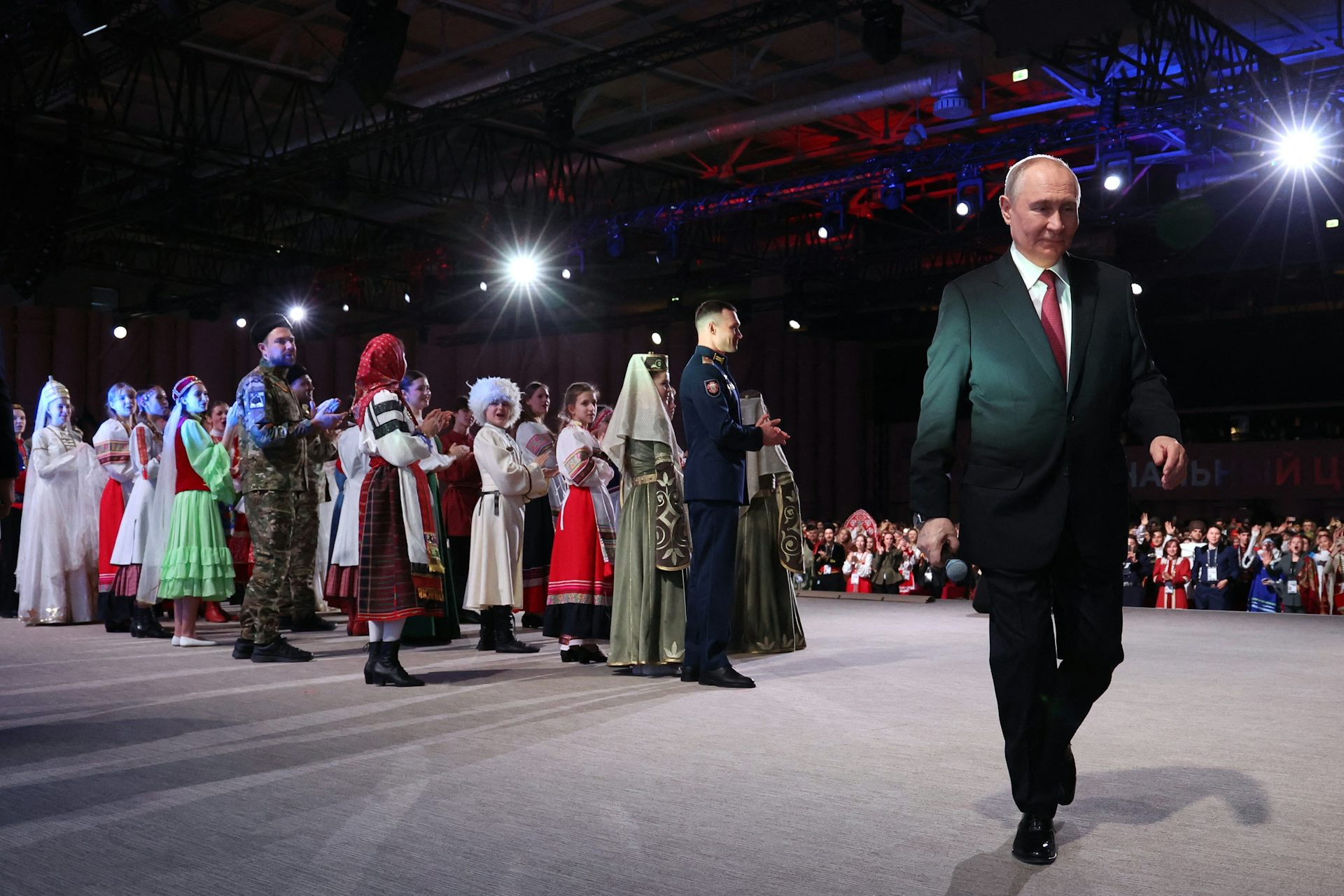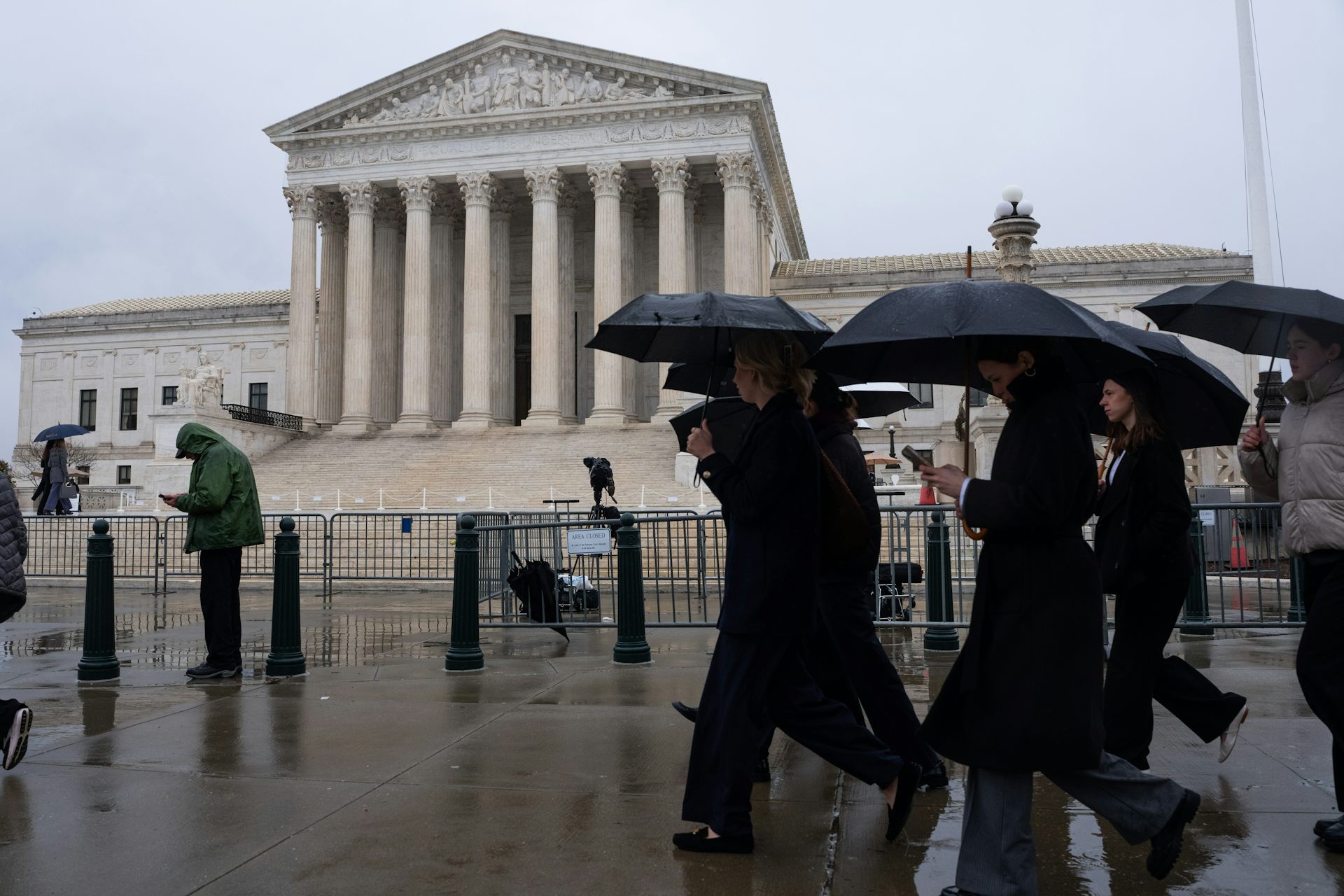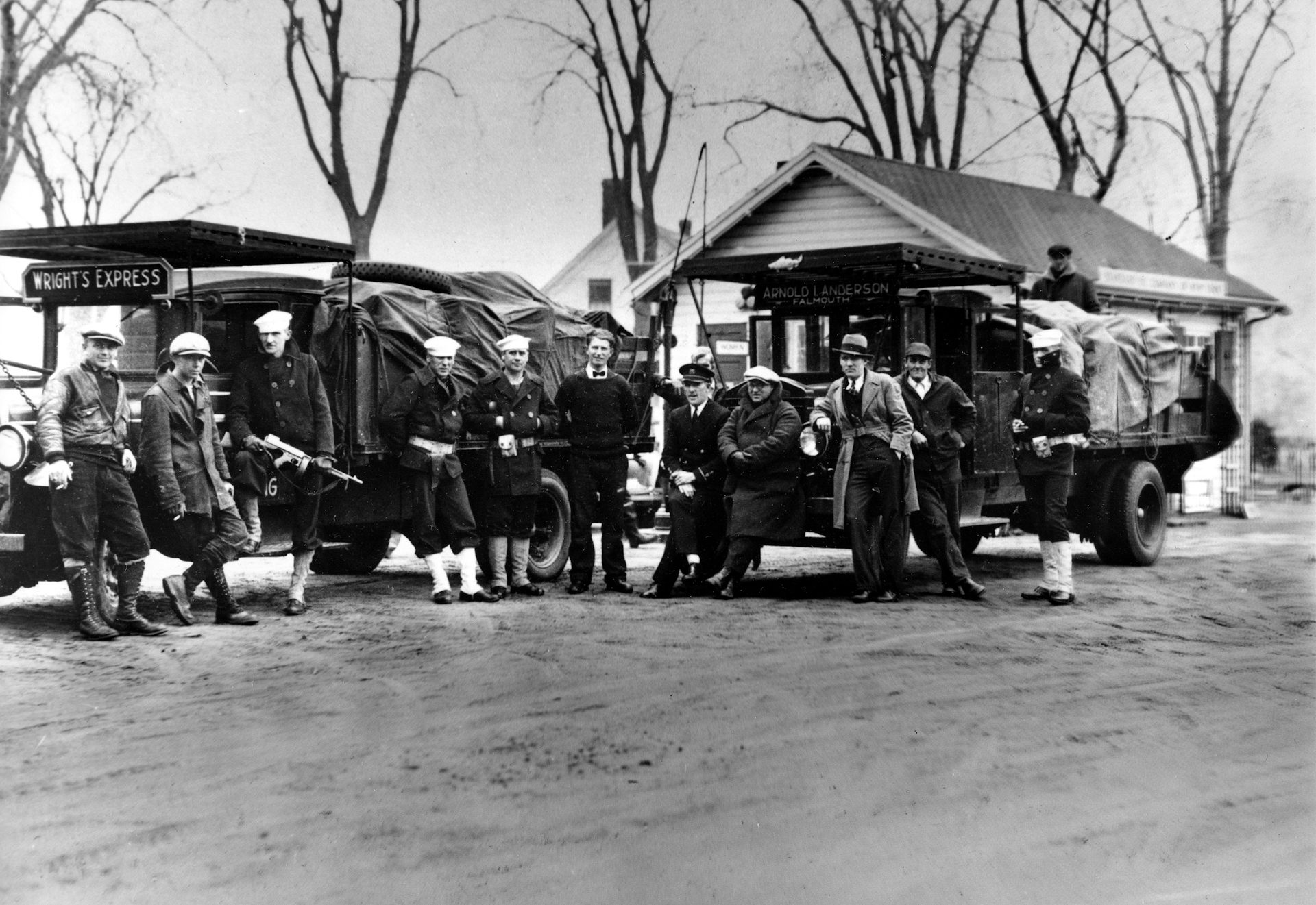How the conservative Federalist Society will affect the Supreme Court for decades to come
Research shows that Supreme Court justices affiliated with the group are more consistently conservative than other justices, meaning they seldom deviate from their voting behavior.
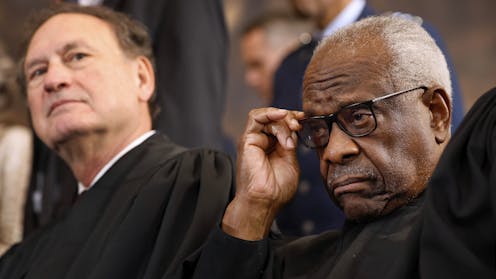
During the 2016 presidential election campaign, candidate Donald Trump took the unprecedented move of releasing a list of his potential Supreme Court nominees.
But Trump didn’t assemble this list himself. Instead, he outsourced the selection of his judicial appointments to leaders of the Federalist Society, an organization in the conservative legal movement.
As Trump explained in a 2016 interview, “We’re going to have great judges, conservative, all picked by the Federalist Society.”
This was a strategic decision by Trump. By turning to the Federalist Society, he was able to court conservative and evangelical voters who may have been otherwise uneasy with supporting the former New York City real estate mogul.
In his first presidential term, Trump appointed three justices affiliated with the Federalist Society – Neil Gorsuch, Brett Kavanaugh, and Amy Coney Barrett – in addition to hundreds of lower federal court judges. Federalist Society affiliates are current or former members of the organization, as well as individuals who interact with the group, such as by attending Federalist Society events, but who may not claim membership.
We are political science scholars who recently published research in a peer-reviewed journal showing that Supreme Court justices affiliated with the Federalist Society are more conservative and more consistently conservative than other justices, meaning they seldom deviate from their conservative voting behavior.
Our research suggests that, despite Trump’s recent criticism of the organization and its leadership, justices affiliated with the Federalist Society will advance the conservative legal agenda decades into the future. But this won’t always involve supporting Trump’s agenda.
Here’s what you should know, and why it matters.
The Federalist Society
The Federalist Society for Law and Public Policy Studies was founded in 1982 with the goal of providing intellectual spaces for conservative law students who felt their views were dismissed by the legal field. It has grown tremendously over the past 40 years. Today, it boasts more than 200 chapters and over 70,000 members.
Unlike other conservative public interest groups, it does not advocate for specific issue positions. Instead, it promotes its goals primarily through education and networking.
The Federalist Society’s educational mission is pursued chiefly in law schools. That’s where it trains the next generation of lawyers in the approaches and goals of the conservative legal movement. This includes promoting the judicial philosophy of originalism – the idea that the best way to interpret the U.S. Constitution is according to how it was understood at the time of its adoption.
Originalism is often used to justify conservative outcomes.
For example, Justice Clarence Thomas, a prominent member of the Federalist Society, has called for using originalism to reconsider Supreme Court precedents involving the right to contraception, same-sex marriage and same-sex consensual relations.
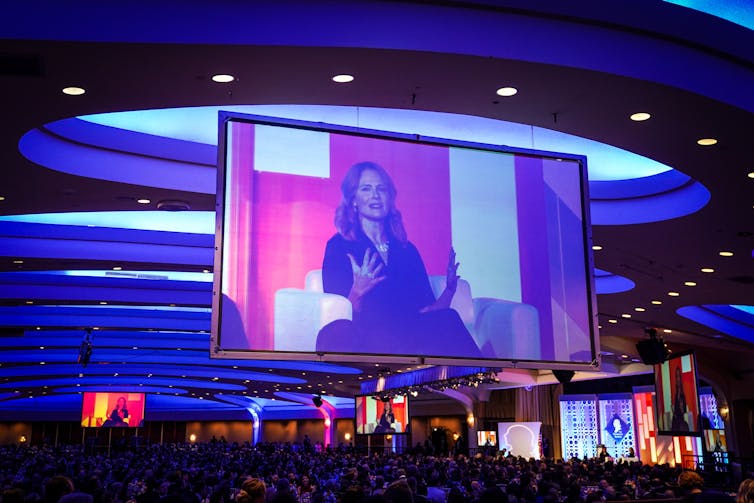
The Federalist Society network also connects junior members with more senior members, helping young lawyers obtain prestigious clerkships and positions in government and the legal profession. These lawyers tend to associate with the Federalist Society throughout their careers.
Federalist Society affiliates learn that promoting the group’s interest is also a way of promoting their self-interests as they move up in the legal world.
For Supreme Court justices, this networking has tangible benefits. For instance, Justice Samuel Alito accepted a luxury fishing vacation in 2008 organized by Leonard Leo, the former executive vice president and current co-chair of the Federalist Society. The estimated cost of the fishing trip was more than $100,000.
And Thomas was treated to decades of high-end vacations and private school tuition for his grandnephew – whom he raised as a son – by billionaire businessman Harlan Crow, a Federalist Society donor.
In short, the Federalist Society is a network of lawyers and judges who share a conservative outlook on the world and aspire to etch the conservative agenda into law through judicial decisions.
Our research
Our research sought to answer two interrelated questions. Are justices affiliated with the Federalist Society more conservative than nonaffiliated justices, and are they more consistently conservative?
To illustrate this, consider former Justice David Souter, whom President George H.W. Bush appointed in 1990 and who had no connections to the Federalist Society. Despite being a Republican appointee, Souter often voted with the court’s liberal members, such as upholding abortion rights in 1992. In 2005, he wrote the majority opinion in a ruling that prevented the Ten Commandments from being displayed in courthouses and public schools.
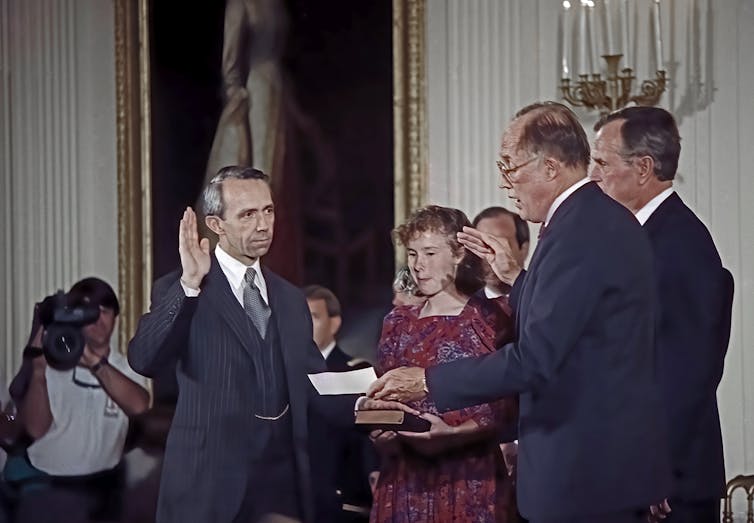
To determine whether justices affiliated with the Federalist Society are different from even other judges appointed by Republican presidents, we examined almost 25,000 votes cast by Supreme Court justices between 1986 and 2023. We started with 1986 because that’s when the first justice affiliated with the Federalist Society – Antonin Scalia – joined the high court.
We classified votes as conservative or liberal according to a well-established methodology. For example, conservative votes support the restriction of reproductive freedom, are anti-business regulation and generally disfavor policies that promote the rights of vulnerable populations, such as the LGBTQ+ community. Liberal votes do the opposite.
We found that justices connected to the Federalist Society are about 10 percentage points more likely to cast a conservative vote than other justices, even other justices appointed by Republican presidents. And they are more consistent in their voting behavior, seldom casting votes that go against their conservative values.
The Federalist Society’s lasting impact
These findings have important implications. Justices on the modern Supreme Court serve for about a quarter century on average. And every current Republican-appointed member of the court is affiliated with the Federalist Society.
This means that Americans are likely to see justices affiliated with the Federalist Society advance the agenda of the conservative legal movement for decades to come. This has already happened in recent decisions that curtailed reproductive freedom, eliminated affirmative action in college admissions and expanded the powers of the president, including immunizing the president from criminal prosecution.
President Trump has recently had a high-profile breakup with the Federalist Society, calling Leo a “sleazebag” and expressing his disappointment with the organization.
Trump’s outburst followed a ruling by the U.S. Court of International Trade that blocked his sweeping tariff program against China and other nations. This happened despite one of Trump’s first-term judicial appointees sitting on the panel.
Notwithstanding this acrimony, this term will give justices affiliated with the Federalist Society the opportunity to further solidify the conservative agenda. Cases involving LGBTQ+ rights and federal elections are on the docket. And the court will be adding other important issue areas as it fills out its caseload for the 2025-26 term, which starts on the first Monday in October.
The authors do not work for, consult, own shares in or receive funding from any company or organization that would benefit from this article, and have disclosed no relevant affiliations beyond their academic appointment.
Read These Next
As war in Ukraine enters a 5th year, will the ‘Putin consensus’ among Russians hold?
Polling in Russia suggests strong support for President Vladimir Putin. Yet below the surface, popular…
Supreme Court rules against Trump’s emergency tariffs – but leaves key questions unanswered
The ruling strikes down most of the Trump administration’s current tariffs, with more limited options…
Enforcing Prohibition with a massive new federal force of poorly trained agents didn’t go so well in
Both Prohibition and current mass deportation efforts were hastily built, staffed by people permitted…


